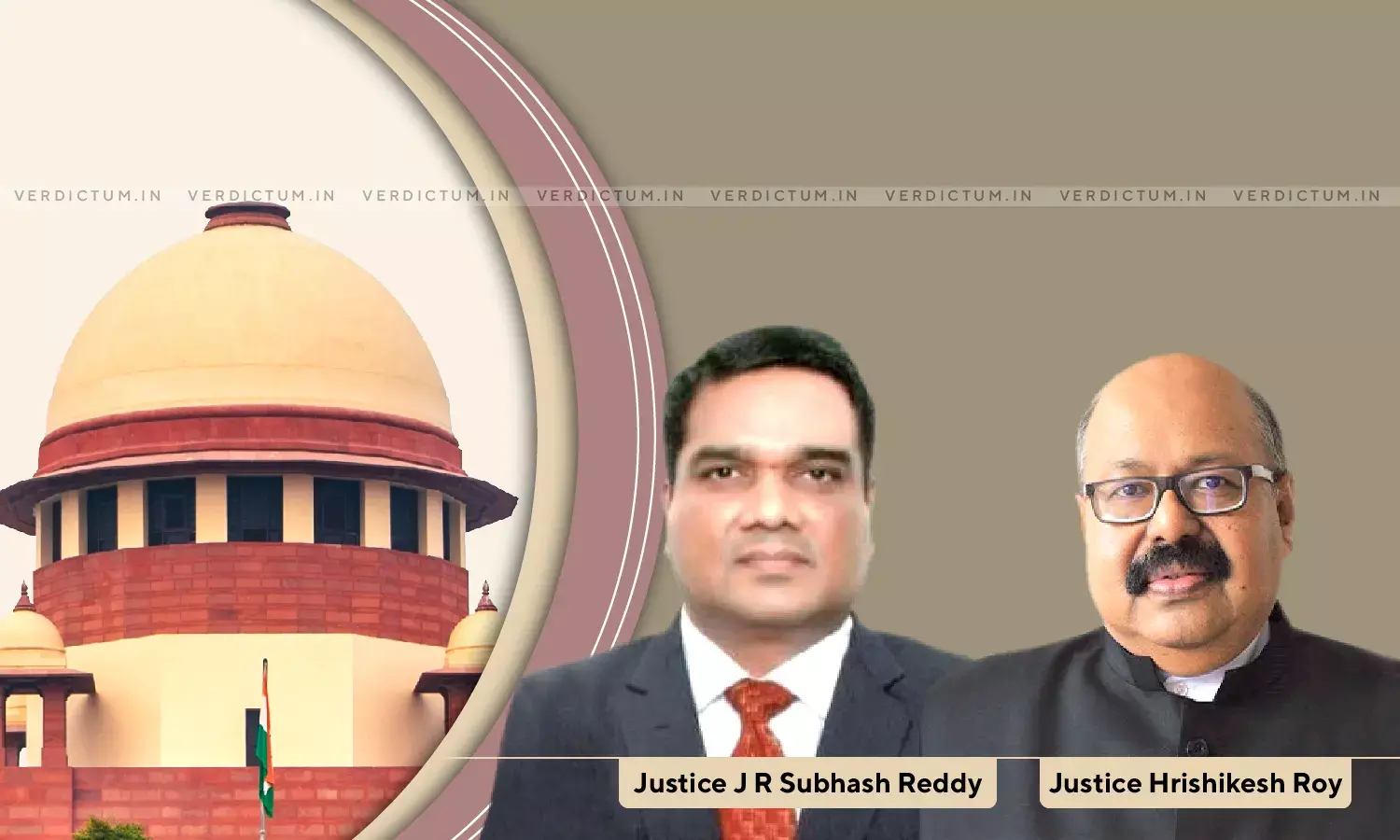Plaintiff Cannot Be Compelled To Undergo DNA Test In Support Of Defendant's Case: Supreme Court

A two-judge Bench of Justice R. Subhash Reddy and Justice Hrishikesh Roy has held that a Plaintiff cannot be forced to undergo DNA test as evidence in support of the Defendant's case.
"When the plaintiff is unwilling to subject himself to the DNA test, forcing him to undergo one would impinge on his personal liberty and his right to privacy," the Court opined.
An appeal was preferred before the Supreme Court against the judgment of the High Court which had directed the Appellant Plaintiff to undergo DNA test in a declaratory suit to determine the ownership of property.
In this case, the Appellant had filed a suit in the Trial Court claiming to be the son of the deceased parents. The Appellant had sought the ownership of property left behind by deceased parents. In the suit filed, he arrayed daughters of the deceased as Defendants.
The daughters had denied that the Appellant was the son of their parents and contended that he was disentitled to any share in their paternal property.
During the trial, when the suit was slated for Defendants' evidence, an application was filed by the Defendants seeking direction from the Court to conduct a DNA test of the Appellant to establish his biological link with the deceased parents.
However, the application was opposed by the Appellant on the premise that he had already adduced sufficient evidence to prove that he was the son of the deceased parents.
Upon dismissal of the application by the Trial Court, a Revision Petition was filed in the High Court by the Defendants, which had held that DNA test is a double edged weapon and is vital to determine the relation of both parties.
The questions which were dealt with by the Supreme Court were –
1) Whether in a declaratory suit where ownership over coparcenary property is claimed, the plaintiff, against his wishes, can be subjected to the DNA test;
2) Whether the Appellant, without a DNA test can establish right over the coparcenary property through material evidence; and
3) Whether in the absence of consent, a party can be forced to undergo DNA test.
The Apex Court while referring to judgment in Banarsi Dass V. Teeku Dutta observed, "DNA test is not to be directed as a matter of routine but only in deserving cases."
The Court while referring to a precedent noted that the Courts must exercise their discretion after balancing the interests of the parties to see whether a DNA test would be required for a just decision in the matter and such a direction would satisfy the test of 'eminent need.'
"In circumstances where other evidence is available to prove or dispute the relationship, the court should ordinarily refrain from ordering blood tests. This is because such tests impinge upon the right of privacy of an individual and could also have major societal repercussions. Indian law leans towards legitimacy and frowns upon bastardy. The presumption in law of legitimacy of a child cannot be lightly repelled," the Court asserted.
The Court further held that the basic rule of evidence is that the burden is on the party that asserts the positive, but where that is challenged, the burden shifts upon the party who pleads the negative.
"Keeping in mind the issue of burden of proof, it would be safe to conclude that in a case like the present, the Court's decision should be rendered only after balancing the interests of the parties, i.e, the quest for truth, and the social and cultural implications involved therein," the Bench observed.
Further Court was of the view, "DNA is unique to an individual (barring twins) and can be used to identify a person's identity, trace familial linkages or even reveal sensitive health information."
The Court held that that the Appellant had already produced evidence, hence, further evidence by way of a DNA test was not required.
"In such kind of litigation where the interest will have to be balanced and the test of eminent need is not satisfied our considered opinion is that the protection of the right to privacy of the Plaintiff should get precedence."
In the light of these observations, the Court allowed the appeal and set aside the impugned judgment of the High Court, thereby restoring the order of the Trial Court.

